In this article Alison Frost, canine nutritionist with ProDog and holistic care advocate, delves into essential sun protection tips for your dog.
AWARD WINNING RAW DOG FOOD & DOG SUPPLEMENTS
Seasonal Health
As we move into the summer months and the temperatures begin to heat up, we know that protecting ourselves from the sun’s rays is vital to prevent skin damage. But you may be wondering whether the same applies to your dog. Is dog sunscreen necessary? And, what type of sun cream for dogs is safe?
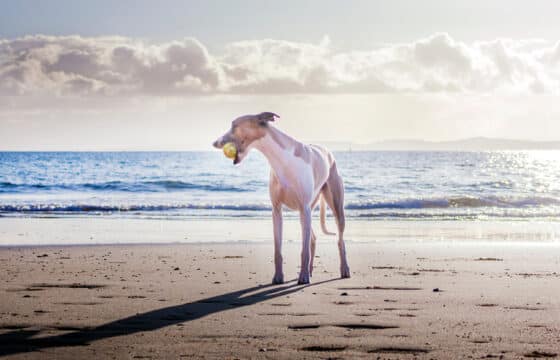
In this article Alison Frost, canine nutritionist with ProDog and holistic care advocate, delves into essential sun protection tips for your dog.
First and foremost, hot temperatures are not good for any dog. It’s important to remember that dogs can get heat stroke quickly, so they must always have access to cooler, shaded areas in and outside the house.
Whilst some dogs may seem to enjoy basking in the sun and soaking up the rays, you must monitor closely and encourage them to relax in areas away from direct sun, especially in the middle of the day. Imagine wearing a fur coat and sunbathing; it wouldn’t take long before you begin to overheat.
Read keeping your dog cool for more guidance.
That said, of course, there will be times your dog is in the sun, and the good news is not every dog needs sunscreen. Certain breeds, and those with more exposed skin, will.
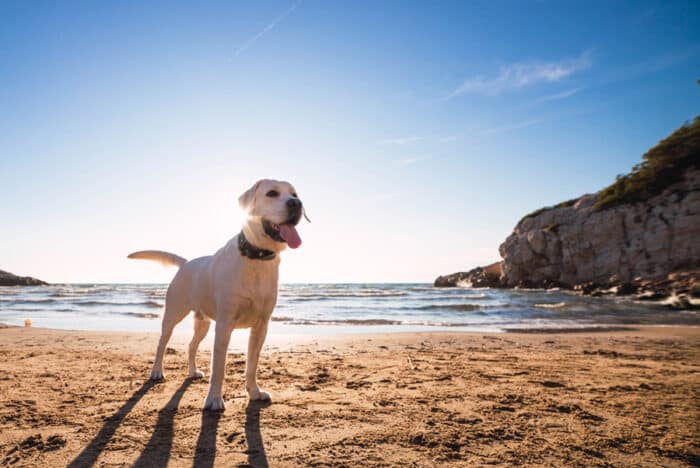
Dogs whose skin is more exposed to the sun will need protection. If your dog falls into one or more of these categories, they are more at risk of sunburn, so if they are likely to be out in the summer sun for any length of time you may want to consider splashing out on some dog-friendly sunscreen to help keep them protected:
White dogs (not double-coated)
Dogs with very thin coats
Dogs with light-pigmented noses and eyelids
Shaved dogs
Shorter-haired or hairless dogs,
Dogs with very light-coloured noses — black noses are generally fine without sunblock; paw and nose balms generally will keep their snout in tip-top condition.
If your dog has been shaved for an operation or due to skin issues, they will also need sun cream protection. Don’t forget pink bellies, ears and noses are all vulnerable to sun damage.
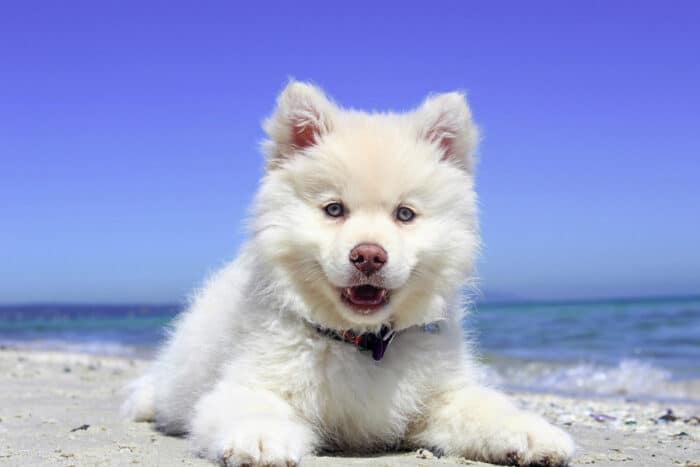
Most dogs have coats that protect them from the sun’s UV rays. A dog’s fur is their natural defence against sunburn; no need for any extra protection.
For those with double-coated dog breeds, such as Huskies, Retrievers, German Shepherds, Akitas etc, shaving them as the weather warms up may seem like a perfectly logical idea. When you see the clumps of insulating fur they shed during late spring time and early summer, it may be tempting to help them cool off by clipping their coat. BUT DON’T!
Shaving their coat actually makes it harder for them to cool off and exposes their skin to the sun. Instead, a good regular brush, using grooming tools designed for double-coated breeds, will help remove excess fur and thin down the winter thermal layer.
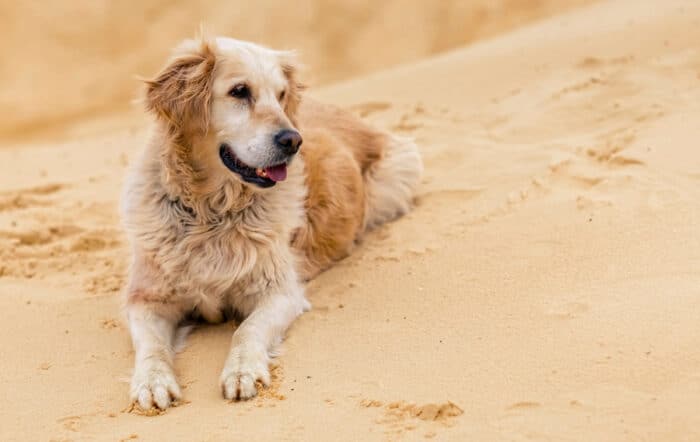
When choosing a sun cream for your dog, steer clear of commercially available products, especially those designed for humans. Many contain a concoction of toxic ingredients such as parabens and zinc oxide. These harmful ingredients are more dangerous to dogs than humans because they lick their skin and fur, which means the chemicals go straight into the gut.
Choosing a dog-friendly natural solution and always reading the label is the best way to practise sun safety while supporting your dogs’ overall health.
I advise you to test your dog-friendly sun cream on a small spot of your dog’s skin to ensure they don’t have any reaction. Once you’ve patch tested, apply it to their belly, nose, lips, ear tips, and other areas where the skin is exposed. Avoid getting it in their eyes if using it on the face.
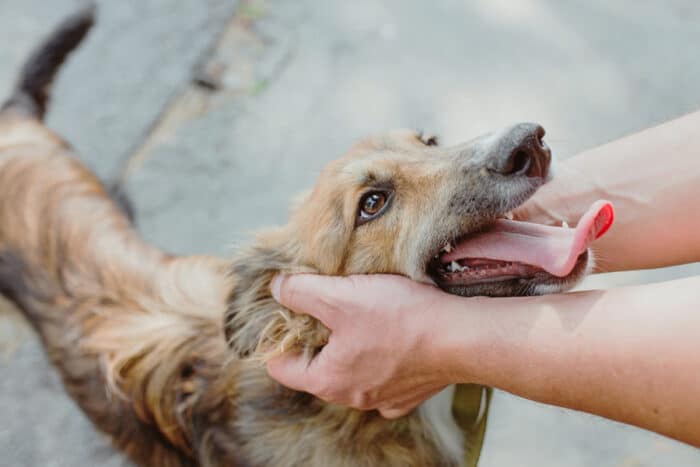
Whilst the many benefits of raw food have become well documented, one little-known fact is that unprocessed raw meat contains significant amounts of the amino acid histidine. Histidine helps protect the skin by producing urocanic acid, preventing molecular damage. [1]
Also, did you know that certain fresh, natural foods can contribute to sun protection? Some fruits and vegetables are rich in antioxidants called carotenoids, which act as plant sunscreen. While these foods cannot replace sunscreen, they can increase antioxidant levels in the skin [2]. Incorporating antioxidant-rich whole foods into your dog’s ProDog meals, such as lightly steamed greens or colourful berries, promotes overall health and supports the skin’s natural sun barrier for dogs.
Search our A-Z guide to find out what foods are safe for your dog to eat.
Additionally, ProDog’s Digest supplement contains astaxanthin, an efficient blocker of ultraviolet radiation that safeguards the skin against UV rays and sunburn [3].
For tailored nutritional advice, contact our nutrition advisors today.
Of course, limiting your dog’s exposure is the most effective way to protect against the sun. Whilst your dog may enjoy lounging in the sun, remember, our fur friends don’t always know what’s best for them! Be sure to keep them well hydrated and encourage them to snooze in the shade or indoors rather than in the sun-soaked garden.
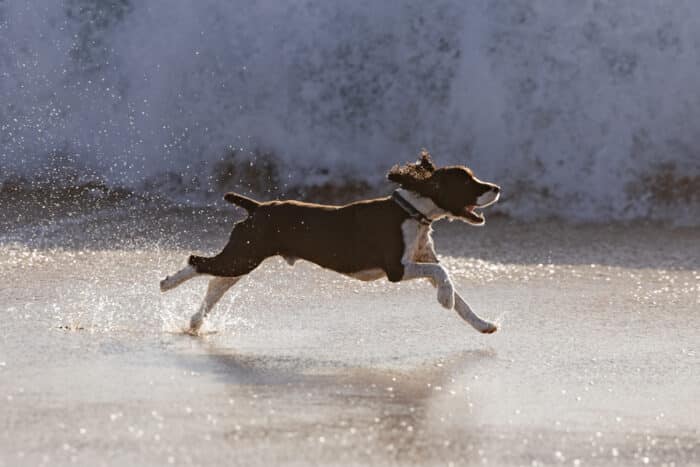
0 comments